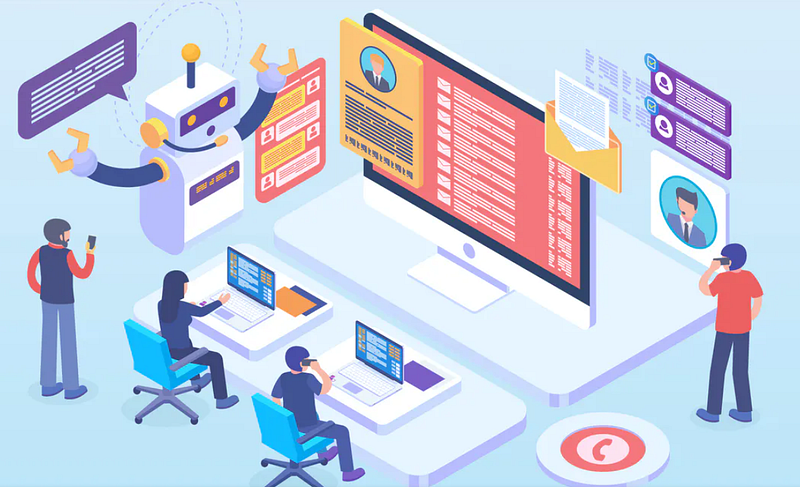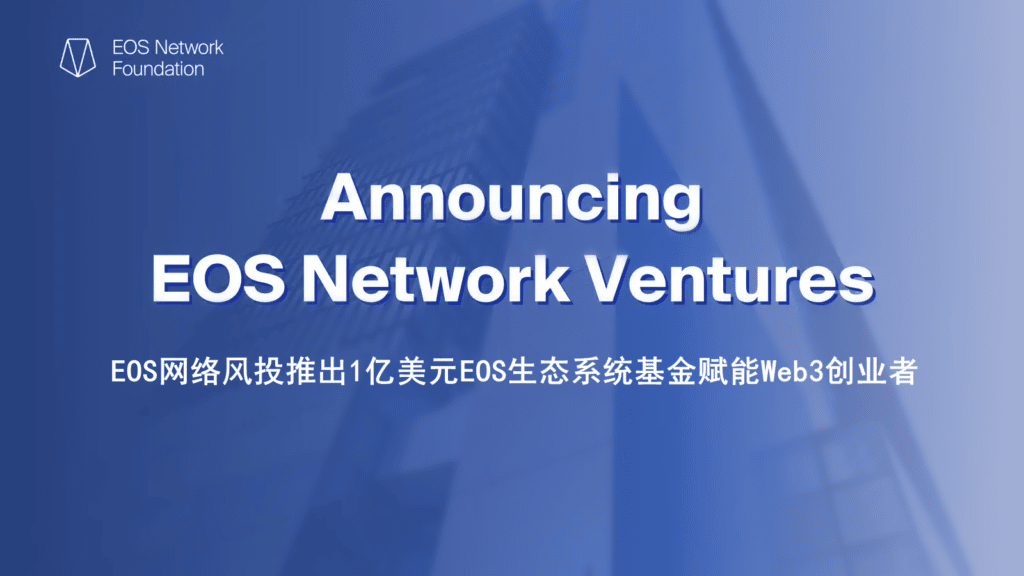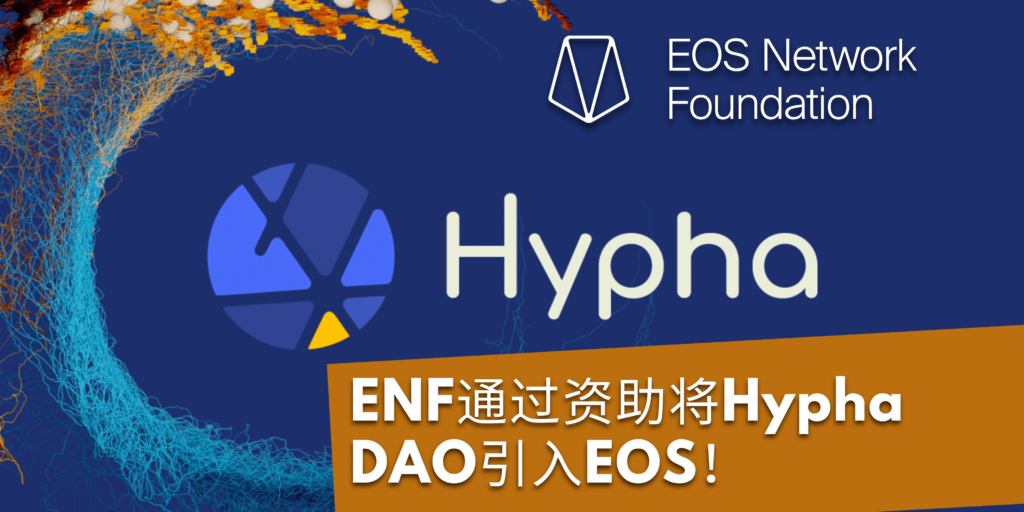Creating an efficient, transparent, and milestone-driven grant investment framework.
The EOS Network Foundation’s (ENF) mandate is to enable developers, businesses, and individuals to build on EOS. Achieving measurable success will require open and transparent systems that are designed to effectively highlight applicant stakeholders and direct them towards the mechanism suitable to their needs, while ensuring the subsequent interactions with said mechanism is timely and efficient.
Systems like these have traditionally been opaque and difficult to approach from the outside, and feedback from applicants often highlight frustrating experiences that lead to resentment due to expectations not being met. This has led to many instances of projects wasting time and money, and is a focus that we wish to address in building the framework that will ultimately be available to our community.
With renewed interest in the EOS ecosystem, some projects have been reaching out to the ENF directly for funding. Our priority remains in constructing a base system before we open for direct grant applications. This will ensure that applicants have as much of a fair means of receiving funding as others and the process is streamlined and scalable, ready to handle an influx of applications when deployed.
At this time there isn’t a framework in place to handle any ad-hoc requests. However, the ENF is actively pursuing the development of such a system.
While developing the framework the ENF believes it’s important to share some of the ideas that are being considered in regards to building this new grant application mechanism. We must consider which challenges are likely to arise and what counter-measures we can put in place to address those inevitable concerns. The process will reveal what rules are needed for the framework, and which inputs we need to consider as filters.
A clear set of well-defined rules for decision making will make the process more streamlined and easier for stakeholders on all sides of the suggested framework to adhere to and to prepare for.
Building a system that can grow
The first season of Pomelo saw 209 proposals being submitted; 30,759 EOS (~$133,276) being raised through 5796 contributions from 1022 unique contributors, ultimately deploying more than $630,000 into the ecosystem once the matching pool is distributed. Pomelo has infused the EOS ecosystem with vitality, and has helped gather important data that can be used for the framework. The ENF is expecting an influx of applications once the doors open for individual direct application. As such, we have a general sense of growth capacity the framework must be able to scale towards at the onset of launch.
Pomelo Season 1 Grant donations are closed now!
A big 🙏 THANK YOU 🙏 to all the participants
👏👏👏👏👏👏👏👏👏👏👏👏👏👏👏👏👏👏👏👏👏👏👏👏👏👏👏👏👏👏👏👏👏👏👏👏👏👏
🥁Here are the final results🥁
Join us in the analysis! 🕵🏼♀️🕵🏻♂️$EOS #EOS #Crypto 🚀 pic.twitter.com/xVb8YzkkeI
— Pomelo – web3 crowdfunding (@PomeloGrants) December 1, 2021
A handful of well written applications, informative and concise, would be manageable. However, the likely significant volume of complex applications, full of technical information and challenging new ideas, would be exceedingly demanding to process. Without a well defined system providing valuable feedback in a timely manner, said system would be limited on multiple fronts and would not scale.
There is a balance that is desirable between designing a system that scales but lacks demand and one where supply is unable to be met. We are conscientious of this and know that this process will be a journey that will involve multiple iterations and will adapt and grow with time. The aim is to ensure the framework is able to scale in proportion to the number of projects and people depending on it. The closer we can be to achieving the right balance, the closer the ENF will be able to freely carry out its mandate with less friction and a greater degree of efficiency as it meets the demands of today, while growing to meet those of tomorrow.
Working towards this we can look towards other organizations who carry out similar mandates in the wider blockchain community for guidance and inspiration.
Acting on initiative and giving individual aid
Polkadot’s Web3 Foundation (W3F) funds projects that make it easier for developers to build decentralized software protocols, and has a detailed grant program that supports these projects. The W3F is also willing to fund outside of their own regular protocol, and adapt to a project’s individual situation. The ENF is empowered to fund individual projects on a case-by-case basis, and we believe it is important to recognize the potential in any project committed to elevating EOS.
When the main goal of an organisation is to ensure the success of its participants, it highlights the true nature of that organisation.
One of the ENFs core strategies is to allocate capital through the means of direct contributions, and the ability to do so is going to emphasize our capacity to adapt to the individual needs of each project. One of the ways to follow through on this goal in the short term may reside in leveraging the ENFs Board of Advisors. This approach will inevitably be bottlenecked early on and therefore we are reticent proceeding as such until a subsequent path is known and being developed.
Because the ENF is not held back by seasonal constraints like Pomelo’s seasons, or Eden’s election cycles, potential applicants could theoretically apply directly to the ENF at any time.
The public goods funding pillars of EOS make it possible to apply in parallel across multiple funding opportunities available to builders, businesses, and value creators. For example, we envision it being possible to apply to the ENF for funding, while also applying for Pomelo’s matching pool, participating in an iteration of Eden, or any combination thereof. This means that a project with successful pitches to all three parties can potentially access three methods of funding from within the ecosystem. Additionally, the extra effort required from any project in applying for direct funding from ENF if they have already applied through Pomelo, or participated in Eden, would likely be minimal as the system for submissions would likely be composed of similar information.
Other systems could, and should, emerge to come and complement the above. The possibility for multi-channel funding should inspire and encourage projects to engage in development while building reputation and trust from the community. The greater a particular project and team grows in measurable trust, the more doors we envision the ecosystem is going to open for them.
Approaching from various angles
There is a need to determine procedures for the funding process. For example, we may settle on an inside-out process whereby projects are contacted by the ENF about their Pomelo proposal to ask for additional information, ultimately working towards setting up formal communication channels that could assist in the ENFs decision making for a direct grant to said project. Such a system would need to ensure accountability and transparency in working with those selected to ensure projects deliver on their milestones and intent. This would require multiple project managers in charge of supporting these projects through to completion.
Another option may be to focus more on the outside-in approach, whereby projects send in their proposals directly to the ENF, where a cohort of analysts review and make determination on which project to fund, before heading them off to project managers carrying them through afterwards.
A hybrid model may be deemed to be best.
These are the types of decisions that are being contemplated and will ultimately form the basis for the framework.
In addition, we must determine whether there are set levels of funding for certain metrics for each project, or if a project lands in set tiers of funding depending on the inputs of that project. We might decide the best way to go about it is to say that there are only three scalable levels of funding such as with W3F or some other variation.

Additional support
Funding might not be the only way to add value to any process, as opening doors or cutting waiting times are both major cost factors. It is in the best interest of all stakeholders to ensure the ultimate success of applicants, whether it is through the ENF or through other mechanisms such as introductions to VCs or potential collaborators.
The ENF could provide other types of support outside of working capital in terms of value added to the projects that receive funding. That could be in the form of legal, communication, translation, marketing, or PR support. We will work towards keeping the lines of communication open with invested projects to not only assist in holding the projects accountable, but also aid in situations where we have the resources to offer support that may not be strictly financial.
The intention for the grant framework is not be used just for funding, but to be a whole suite of support for developers, businesses, and individuals to build on EOS.
A framework might also be of value when multiple projects are developing similar ideas or technologies where there could be overlap or synergies. The overlap might not be overtly noticeable, but the framework or certain data points could potentially point to overlap that has gone unnoticed. The ability to help projects collaborate is a potential benefit as the ENF would be in a position to see the ecosystem from a birds eye view, making connections to amplify the value being created by those respective parties. Another area of support could be as a resource of knowledge for the wider ecosystem. For example, if an early stage project wasn’t already aware of another project with a similar idea or business model; being made aware could allow the project seeking funding on their own to make a more informed decision on whether or not they’d rather attempt to compete or collaborate.
Another angle of assistance that the framework could provide is the ability to recognize what gaps there are in a project or situation and define what type of skillset or organization could best improve their likelihood for success. One of the most common reasons a project applying to Pomelo’s matching pool is denied is because the project’s presentation focuses on the business side of the project rather than the public good. This is not necessarily a negative, so when a project applies for funding to the ENF, the proposed framework might recognize that the project could be better handled by another entity within the ecosystem.
Alternate paths to funding
A project might not qualify for funding through the ENF grant application framework, but there might be other paths to ensure funding for that project. The ENF could assist in recognizing other entities that might be a more suitable fit within the ecosystem.
Our goal is to make it so that everyone in the community would know where to apply for funding based on their specific needs, so that projects are empowered to go directly to where they are best suited.
Ideally we reach a point where ecosystem participants head, or are sent, to the right place as early as possible as often as possible.
We recognize that there should be data points or inputs to prompt us to send a project to other channels. We are looking at what the inputs could be signals to prompt Eden or Pomelo to send projects to the ENF. Cooperation across the wider ecosystem should be an attitude we adopt as a community.
Ultimately, when the framework has been established, it should be able to help us clearly identify who excels at providing what type of assistance to which type of project.
Taking care of our own
It is vital that the community recognize its rising stars and make sure that they are given the opportunity to find a place to evolve within the ecosystem, allowing EOS to grow from successful management of its own resources.
The inputs to recognize these individuals might come from Pomelo, having garnered contributions from the community over several seasons. After being matched and having delivered multiple times building a track record, these individuals might be recognized for further direct support. They might come from Eden’s election cycles, after successfully rising through the ranks, or they might come from some other platform entirely.
It is important to harness the skill and reputation of these individuals, no matter what function a community member is serving. Be it a community manager, developer or some other function in the community, we should find them so that we might reinvest these resources into the community. The more we recognize talents that are already developing EOS, the more the human capital in the community will continue to compound interest.
There are a lot of talented individuals connected to EOS, and we should see more approaching as the gravitational pull of enthusiasm gains momentum.
✅$1.1m for Wallet+, Core+, API+, and Audit+ working groups formed across 10 technical #EOSIO teams
✅$3.5m for 35 projects in recognition grants
✅$500k grant matching for 76 @PomeloGrants projects
✅359k $EOS grants for @EdenOnEOS + @clarion_os— Yves La Rose (@BigBeardSamurai) November 30, 2021
An adaptable mechanism
To keep up with the EOS ecosystem, the framework also needs to be able to change and grow as we learn from experience and each project it is involved with. The framework should be evergreen and be able to evolve alongside EOS as its ecosystem grows and matures. The ENF plans to identify as many of these pieces of the puzzle as possible by the time the grant framework is launched. At a minimum, it will indicate where these pieces approximately lie in the greater placement of the puzzle.
As the ENF works toward producing this framework over the next few months, we encourage the community to offer their own feedback and support in the EOS community Discord server. We look forward to continuing alongside the community on this journey towards a better and brighter future for EOS with an efficient, transparent, and milestone-driven grant investment framework in place.
EOS Network
The EOS Network is a 3rd generation blockchain platform powered by the EOS VM, a low-latency, highly performant, and extensible WebAssembly engine for deterministic execution of near feeless transactions; purpose-built for enabling optimal web3 user and developer experiences. EOS is the flagship blockchain and financial center of the EOSIO protocol, serving as the driving force behind multi-chain collaboration and public goods funding for tools and infrastructure through the EOS Network Foundation (ENF).
EOS Network Foundation
The EOS Network Foundation (ENF) is a not-for-profit organization that coordinates financial and non-financial support to encourage the growth and development of the EOS Network. The ENF is the hub of the EOS Network, harnessing the power of decentralization as a force for positive global change to chart a coordinated future for EOS.



